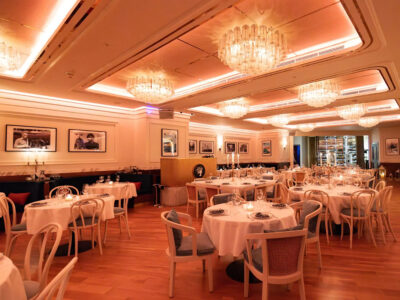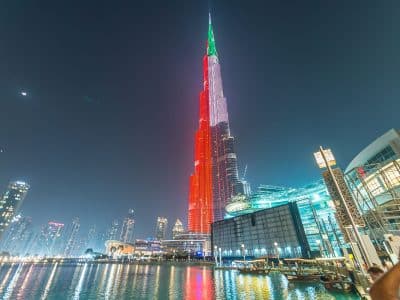Could you please provide a brief outlook of how the UAE hotel market has changed over the past few quarters, in light of the evolving pandemic situation?
Despite the ongoing challenges, the Middle East thrives with opportunities. The region is a key development area and our ambitions across the region have remained the same. The post-coronavirus landscape may be as good or even better than it was pre-pandemic.
One key opportunity as the tourism and hospitality sectors continue looking to innovation is capitalising on emerging consumer trends to cater to changingneeds and demands. As from an investor’s perspective, also true to the UAE, the recovery is more prominent in certain types of hospitality models across various markets, with resorts and serviced apartments leading the way as we recover from the pandemic.
These two types of hospitality real estate have fared better than the conventional hotel product during the coronavirus era and over the past few quarters as we have seen in Dubai, Abu Dhabi, Ras Al Khaimah and Fujairah.
You recent told Construction Week, an Arabian Business sister publication, of the rising interest in serviced apartments. Could you give us any information about which serviced apartment properties have been performing particularly well in 2021?
Examples of properties that performed relatively better than hotels within the same market include the Radisson BLUs in Dubai Marina and in Riyadh’sDiplomatic quarter, to name a few in this region. Not one of our serviced apartments operations lost money or closed for business over the course of the pandemic.
Serviced apartments remain at the heart of our expansion drive, not only in the Middle East but across EMEA. That’s our group strategy since we recently launched and formalised this proposition for our investors, a product we have had in our portfolio for 20 years.
People tend to overlook that this hospitality model has seen double-digit growth over the past decade as there are many active players within this sector. Over the past seven to eight years, global supply has increased by approximately 20 percent. The pandemic was further proof of the resilience of this hospitality model as the product remained profitable amid lockdowns and airport closures, while many hotels lost money. Investment poured into this sector as investors saw the lower risks associated with the product when compared to conventional hotels.
.jpg?T1j97Gj4) Investors have backed serviced apartments as being a lower-risk product than traditional hotel rooms over the pandemic
Investors have backed serviced apartments as being a lower-risk product than traditional hotel rooms over the pandemic
Radisson Individuals, the group’s newest brand, promises a certain uniqueness in each of its properties. Can you share some regional examples of this? What makes these MENA properties ‘Individuals’?
We just recently announced our first Radisson Individuals affiliation in Saudi Arabia and we expect to see more established hotels, resorts and serviced apartments in different markets to be potential candidates for this brand, more opportunities in the UAE than in Saudi Arabia, for instance, our first announcement for the region will actually come out of the kingdom. Stay tuned.
What need does Radisson Individuals fulfil?
Over the past months we have continued to work towards becoming more relevant to changing owner needs and to remaining one of the best conversion-friendly partners in the industry. Radisson Individuals is our response to a market that is becoming relatively mature and as a conversion solution for unique, independent hotels and serviced apartments looking to benefit from a brand affiliation. Radisson Individuals represents an exceptional opportunity for hotels to enhance their visibility, nurture customer confidence, and access a wider audience through multiple distribution channels and a global sales structure.
.jpg?Xfhz8L-r)
You’ve said the Radisson Group aims to double its Middle East portfolio over the next five years. What factors will impact regional hospitality growth over this period?
Our focus remains on adjusting our short- and long-term plans to cope with the rapid changes and allow us to find proactive solutions for our owners and investors. Over the past months we have continued to work towards becoming more relevant to changing owner needs and to remaining one of the best conversion-friendly partners in the industry. Agility and flexibility, while still delivering the profitability needed, are going to be critical for everybodyto succeed. We believe the key is the execution and having the right people in place. We have a very proactive and engaging approach with our partners and investors, and we believe in building long-standing relationships with our owners based on trust and responsibility.








